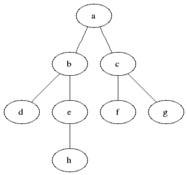(Prompted by an answer.)
Given N3290, §7.1.6.2p4, with the list items unnumbered in the standard, but added for our convenience:
The type denoted by decltype(e) is defined as follows:
if e is an unparenthesized id-expression or an unparenthesized class member access (5.2.5), decltype...
00:00 - 14:0014:00 - 00:00
00:00 - 14:0014:00 - 00:00

